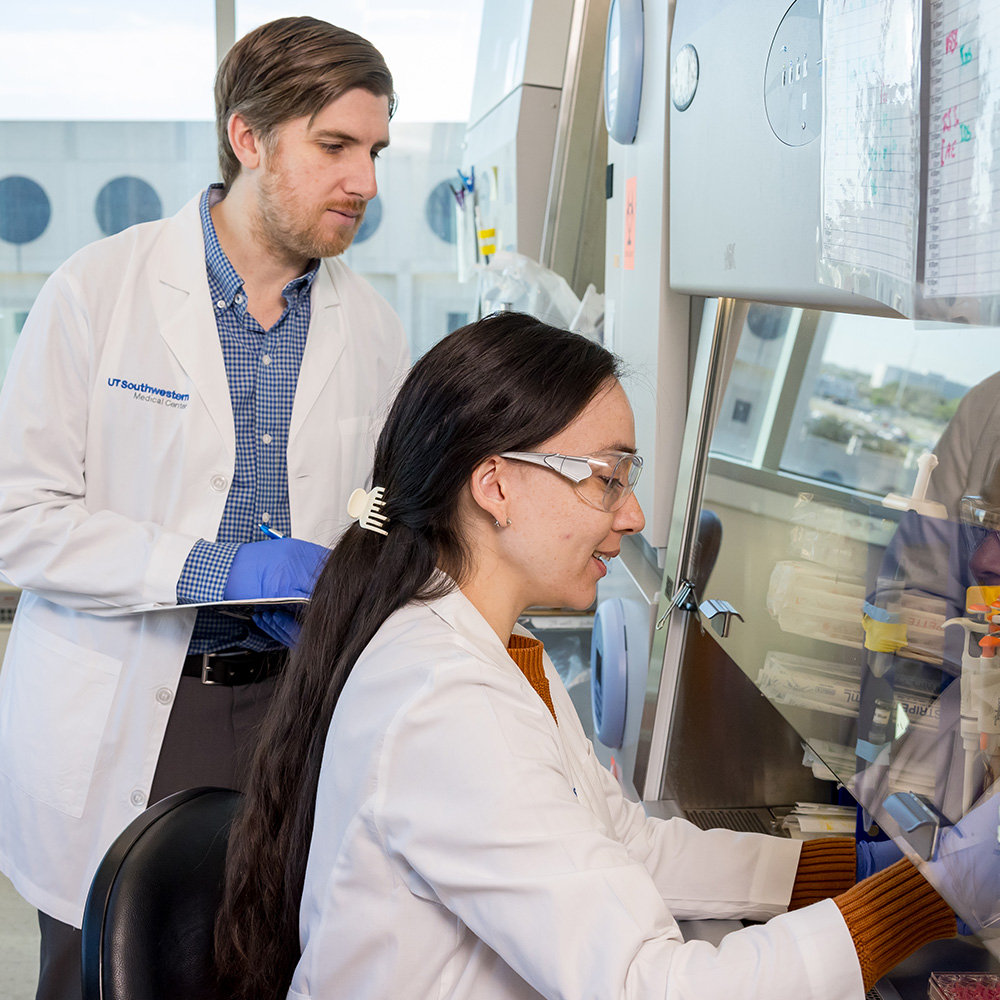Study questions exclusion of cancer survivors from trials

DALLAS – Nov. 22, 2017 – A quarter of newly diagnosed cancer patients 65 or older are survivors who had a prior cancer – often preventing them from participating in clinical trials, researchers from UT Southwestern’s Simmons Cancer Center have found.
The UT Southwestern scientists found that 11 percent of individuals ages 20-64 had a history of a prior cancer, and 25 percent of individuals 65 or older had a history of a prior cancer.
As the number of cancer survivors grows, more individuals are being excluded from cancer clinical trials that could benefit them when diagnosed with a second cancer.
“It is an equity issue,” said senior author Dr. Sandi Pruitt, Assistant Professor of Clinical Sciences at UT Southwestern Medical Center. “There are a lot of cancer survivors who are frustrated that they cannot participate in trials that might prolong their lives.”
Among patients 65 and older, individuals with newly diagnosed melanoma, blood cancers, bone and joint cancers, and bladder cancers were most likely to have had prior cancers.
As of January 2016, there were more than 15.5 million cancer survivors in the U.S., representing nearly 5 percent of the population, and that number is expected to grow to 20.3 million by 2026, according to the National Cancer Institute.
“As the cancer survivor population continues to grow, understanding the nature and impact of a prior cancer is crucial to trial recruitment as well as to generalization of results,” said first author Dr. Caitlin Murphy, Assistant Professor of Clinical Sciences at UT Southwestern.
The study, which appears in JAMA Oncology, is the first of this magnitude to examine prior cancer history across many cancer types.
“Trials that come out with information about how to improve cancer treatments may not be representative of this large group of people. It is possible that, for biological reasons, prior cancer survivors may respond differently to some anti-cancer treatments. Thus, providing information about the efficacy of treatments without including these people is a disservice to a large sub-population,” said Dr. Pruitt, a member of the Simmons Cancer Center.
Using an extensive National Cancer Institute data set called Surveillance, Epidemiology and End Results (SEER), the researchers looked at patients with 28 types of cancer diagnosed between the years 2009 and 2013. SEER data has been collected from cancer registries since 1973, so the researchers were able to look for prior cancers across four decades in 740,000 patients who were newly diagnosed with cancers.
This study builds on prior work on lung cancer done by Dr. Pruitt and Dr. David Gerber, Associate Professor of Internal Medicine and Clinical Sciences and a co-author of the current study. “Drs. Pruitt and Gerber have done a lot of work on lung cancer, looking at the impact of prior cancer history on mortality, and they found that there is no difference in overall survival rate. Their findings call into question why people with a prior history of cancer are excluded from new clinical trials,” said Dr. Murphy, a member of the Simmons Cancer Center.
“Previously, we excluded a substantial proportion of potential subjects from lung cancer clinical trials due to prior cancer. The resulting impact on study enrollment was sobering,” said Dr. Gerber, Co-Director of the Lung Disease Oriented Team and Associate Director for Clinical Research in the Harold C. Simmons Comprehensive Cancer Center at UT Southwestern. “Our earlier studies showed that most of these prior cancers were early-stage, relatively indolent types, and did not adversely impact clinical outcomes. As a result of our work, many recent lung cancer trials, including those sponsored by the National Cancer Institute, no longer routinely exclude patients with prior cancers.”
Future work by the researchers will focus on individuals with six cancer types – breast cancer, colorectal cancer, pancreatic cancer, non-Hodgkin lymphoma, liver cancer, and kidney cancer – looking at whether patients with a prior history of other cancers are more or less likely to die from their current cancer than individuals with no prior cancer history.
|
New cancers in patients 65 or older |
|||
|
Type of cancer |
Number of cases |
Number with a prior cancer |
Percentage with a prior cancer |
|
Breast |
52,940 |
11,113 |
21.0 % |
|
Leukemia |
11,607 |
2,706 |
23.3% |
|
Melanoma |
32,190 |
10,395 |
32.3 % |
|
Pancreatic |
13,223 |
2,480 |
18.8 % |
|
Urinary, bladder |
23,568 |
6,006 |
25.5 % |
About UT Southwestern Medical Center
UT Southwestern, one of the premier academic medical centers in the nation, integrates pioneering biomedical research with exceptional clinical care and education. The institution’s faculty has received six Nobel Prizes, and includes 22 members of the National Academy of Sciences, 18 members of the National Academy of Medicine, and 14 Howard Hughes Medical Institute Investigators. The faculty of more than 2,700 is responsible for groundbreaking medical advances and is committed to translating science-driven research quickly to new clinical treatments. UT Southwestern physicians provide care in about 80 specialties to more than 100,000 hospitalized patients, 600,000 emergency room cases, and oversee approximately 2.2 million outpatient visits a year.





